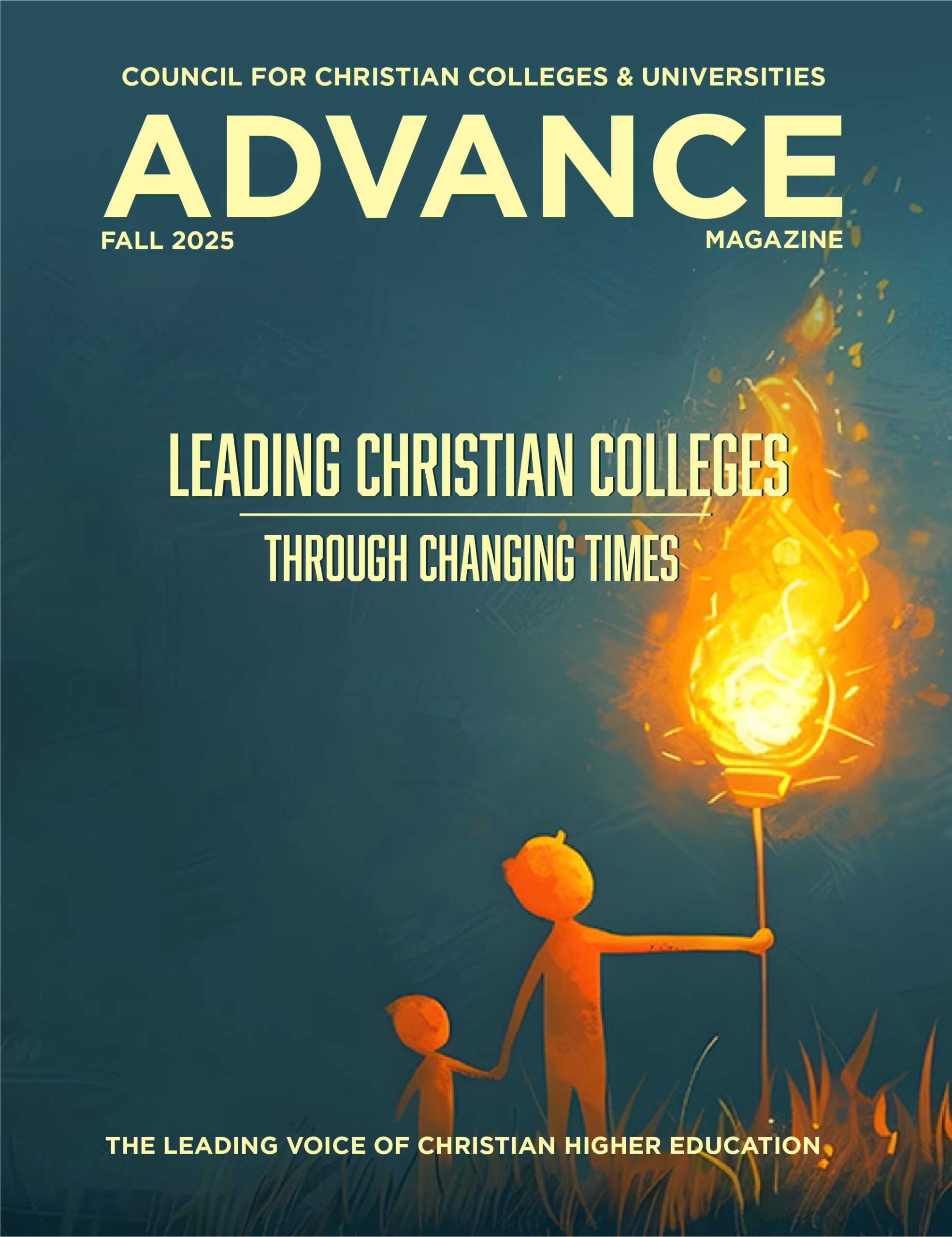News and Publications
WASHINGTON – In a letter hand-delivered to key congressional leaders, the CCCU expressed concerns about measures in the House’s tax reform bill, the Tax Cuts and Jobs Act, that would make college more expensive, make repaying student loans more difficult, discourage employees from using employer-provided education benefits, and undermine schools’ finances.
“The provisions of this bill which affect higher education institutions and students are short-sighted and counterproductive. Institutions are working hard to maximize the number of scholarships they are providing. This legislation makes that more difficult. The U.S. economy is increasingly a knowledge-based economy, so the government should be doing everything possible to help citizens further their education so that they can provide for their families, contribute to their communities, and participate as taxpayers,” CCCU President Shirley V. Hoogstra wrote in the letter.
From Pepperdine to Princeton, America’s colleges and universities are the finest in the world. Education is associated with higher income and lower unemployment, which is ultimately good for society and for tax revenue. For example, in 2016, people in the U.S. over age 25 with a bachelor’s degree earned 67 percent more per week than those with just a high school diploma ($1,156 versus $692), according to the U.S. Bureau of Labor Statistics. They were also half as likely to be unemployed (2.7 percent versus 5.2 percent). Yet, this bill will make obtaining a college degree more difficult, Hoogstra wrote.
There are a number of concerning outcomes from provisions in the Tax Cuts and Jobs Act that the CCCU highlighted in the letter, including:
- Student loans becoming more difficult to repay
This bill would eliminate the student loan interest deduction, which allows taxpayers to deduct up to $2,500 that they paid in interest towards a qualified student loan if their income is under an income threshold, which was $65,000 (single) or $160,000 (married filing jointly) in 2016. This deduction is one of the key tools the government uses to ensure that recent college graduates are able to afford working in middle-to-low-income helping careers, such as education or social work, while still repaying their loans. - Fewer employees pursuing higher education (Sec. 127)
This bill would eliminate employer-provided education assistance (Sec. 127), which currently allows employers to provide employees with up to $5,250 in tax-free assistance towards their education. This benefits employers, employees, universities, and the overall economy by increasing the workforce’s education and skills. Large employers like Wells Fargo are willing to provide up to $5,000 per year in tuition reimbursement to help their almost 270,000 employees, but taxing this benefit will make sure fewer use it. Taxing this benefit will reduce the number of employees furthering their education because it would increase their tax liability. Ultimately, it is the US workforce and our economy that will pay. - Charitable donations becoming disincentivized
The Indiana University Lilly Family School of Philanthropy estimated the effect of doubling the standard deduction (as this bill does) while reducing the top tax rate to 35 percent would be the reduction of charitable giving by as much as $13.1 billion per year. Financial aid supported by charitable giving is a key way in which private universities make higher education affordable to low-income students, providing them access to the kinds of institutions where they are most likely to succeed. It also helps support teaching, research, faculty, cultural activities, libraries, and facilities. Reduced charitable giving to colleges and universities would result in a lower quality educational experience and less scholarship money for students. The charitable deduction is a bedrock principle that promotes the flourishing of the United States’ non-profit sector. It fosters civic engagement and allows private citizens to direct their funds towards the civic causes that make their communities vibrant and America strong. Rather than disincentivizing charitable giving, we instead support extending the charitable deduction to non-itemizers, such as through creating a universal charitable deduction with Rep. Mark Walker’s Universal Charitable Giving Act of 2017 (H.R. 3988), so that all taxpayers benefit when they contribute to their communities. - Fewer students pursuing lifelong learning
The Lifetime Learning Credit provides a tax credit of up to $2,000 per year for taxpayers whose income was under a set threshold, which in 2016 was $65,000 (single) or $130,000 (married filing jointly). This tax credit has helped students outside the mold of a traditional four-year college student. For example, it helps workers who need retraining to transition to a new position or career. It helps part-time and nontraditional undergrads. It helps graduate students pursuing advanced degrees. The elimination of this tax credit will make obtaining this much-needed education more difficult. - Universities having less access to capital to improve facilities
Private, nonprofit institutions, including colleges and universities, use qualified 501(c)(3) private activity bonds to obtain low-cost access to capital. This helps ensure continual improvement of facilities like laboratories, classrooms, and other facilities while still keeping costs low for students. Between 2003 and 2012, this allowed nonprofits to raised $554 billion for capital projects. If the tax exemption had been eliminated over that time period, it would have cost them an additional $166.3 billion. Increasing the cost of capital for colleges and universities will ultimately raise the cost of higher education for students. - Private endowments being used to fund the government, not education
Endowments support institutions’ mission of delivering high-quality, affordable education. Investment income helps support ongoing operations, including financial aid, teaching, research, faculty, student retention and success programs, libraries, and facilities. The more money an institution earns from an endowment, the less students and parents need to pay. By taxing the endowments created by generous private donations to IRS-approved charities, this excise tax sets a dangerous precedent that could be expanded to more colleges and universities in the future. This provision would already affect about 150 schools according to the National Association of Independent Colleges & Universities, including 4 CCCU institutions (Asbury Theological Seminary, College of the Ozarks, Pepperdine University, and Wheaton College), and it could affect more in the future. Furthermore, it unfairly burdens private institutions compared to the public educational institutions with which they compete. - Universities having greater difficulty hiring and retaining high-quality faculty and staff (Sec. 117(d))
Section 117(d) allows colleges and universities to provide a tax-free tuition reduction (often a tuition waiver) to employees or employees’ dependents. Many instructional and administrative staff consider this a key benefit, and it is often why they have chosen to work at educational institutions rather than in the private sector where they could earn more. This benefit helps universities keep leading scholars, who could easily teach or work abroad. If this tuition reduction is no longer available, the costs of attracting and retaining employees will go up (increasing the cost for students), and the quality of education likely will suffer as high-performing employees look to the private sector or abroad.
The CCCU urges lawmakers to remove these alterations to these provisions that will make college more expensive, make repaying loans more difficult, and undermine the higher education sector. We urge Congress not to pass legislation that makes higher education more expensive, less accessible, and lower quality. To pass such legislation would be short-sighted and needlessly undermine the educations and financial well-being of countless students, recent graduates, and employees at institutions of higher education.
View the letters delivered to Capitol Hill here.



